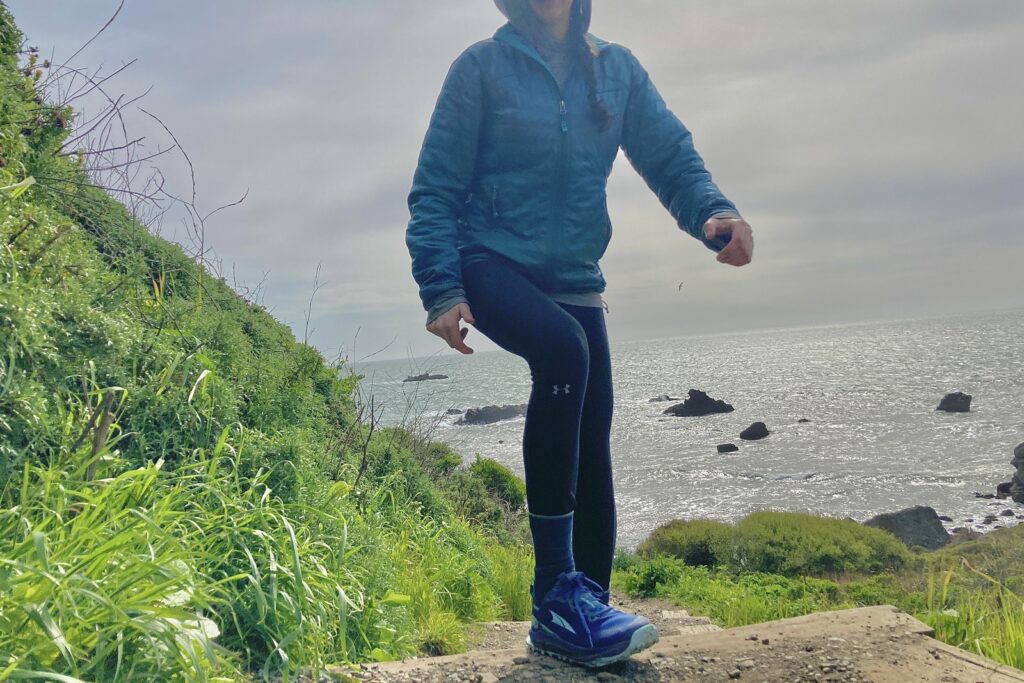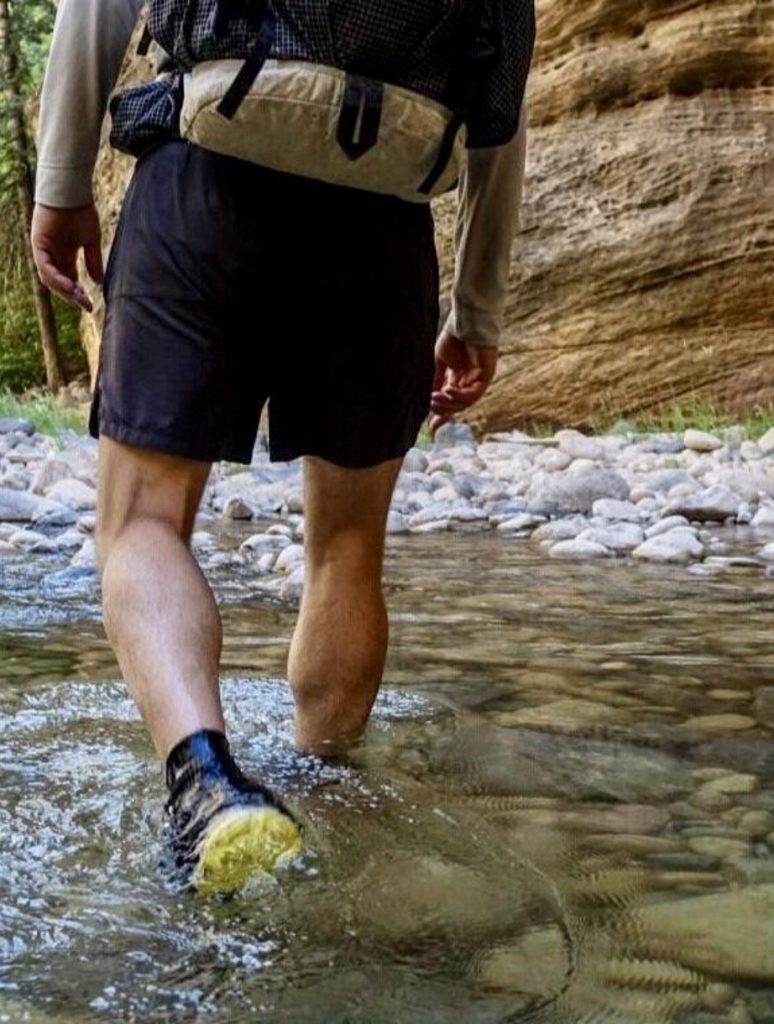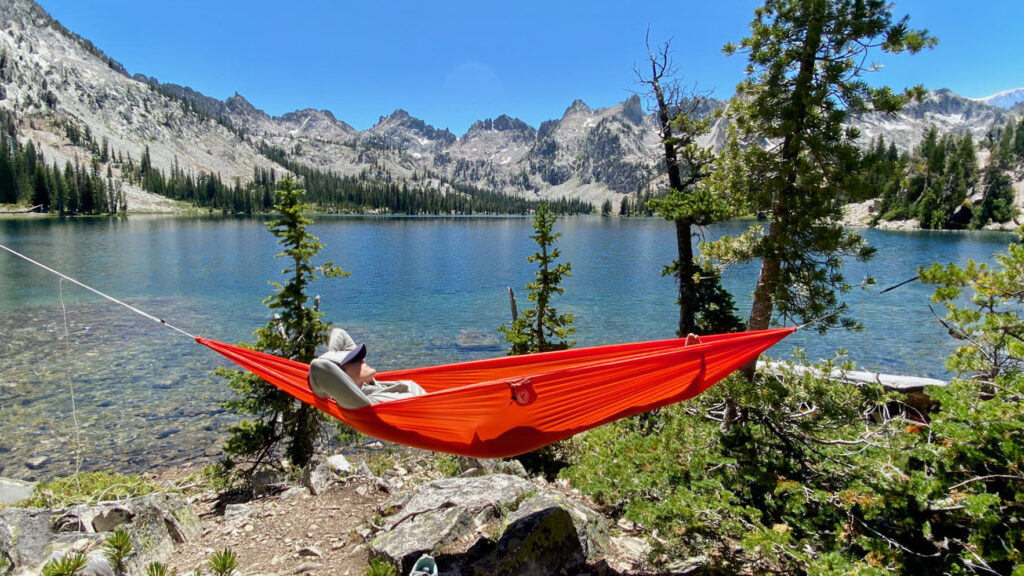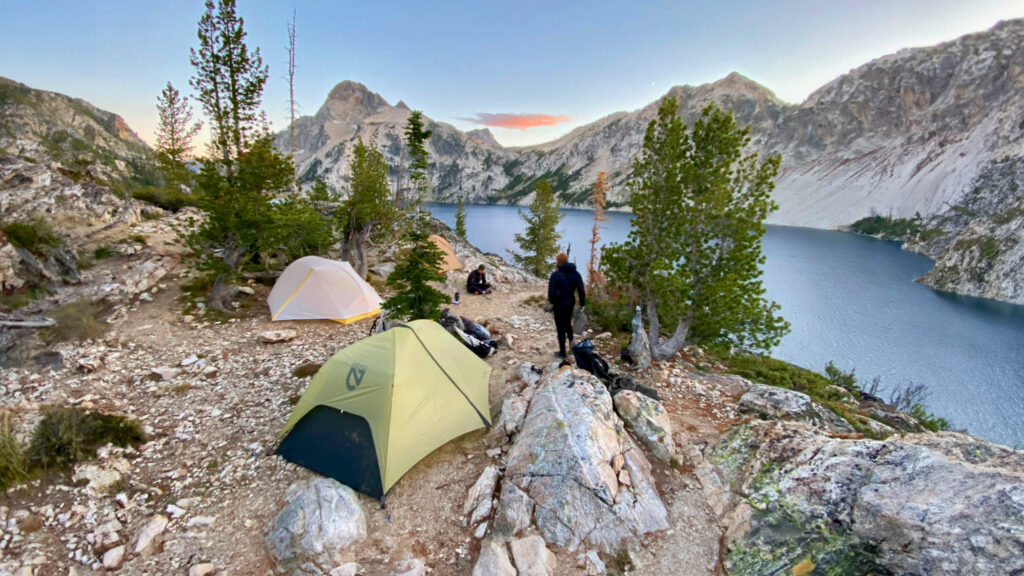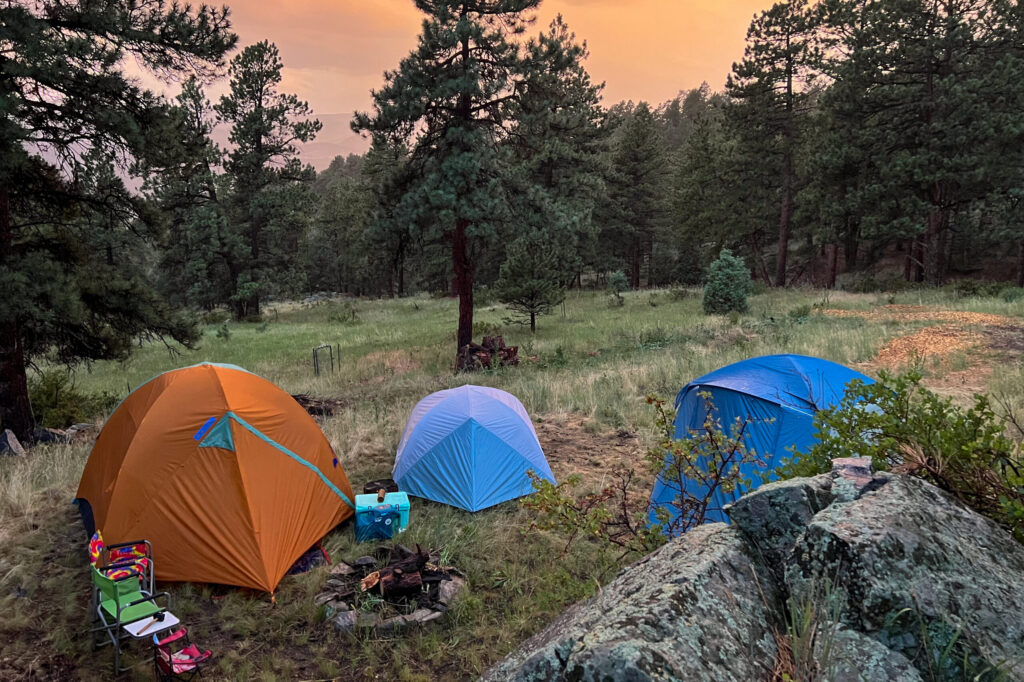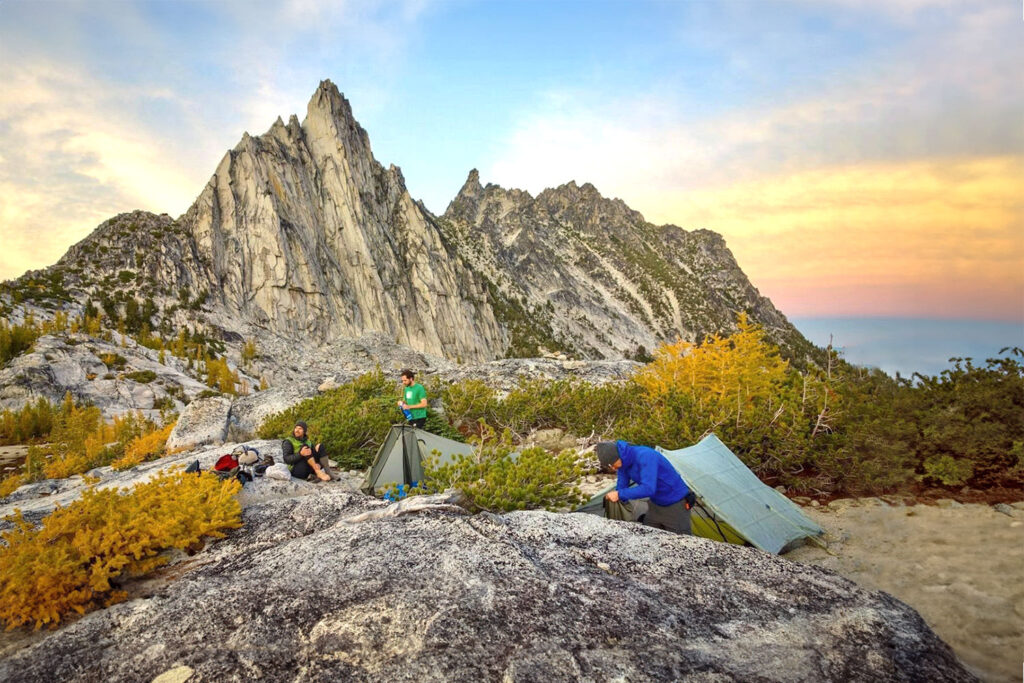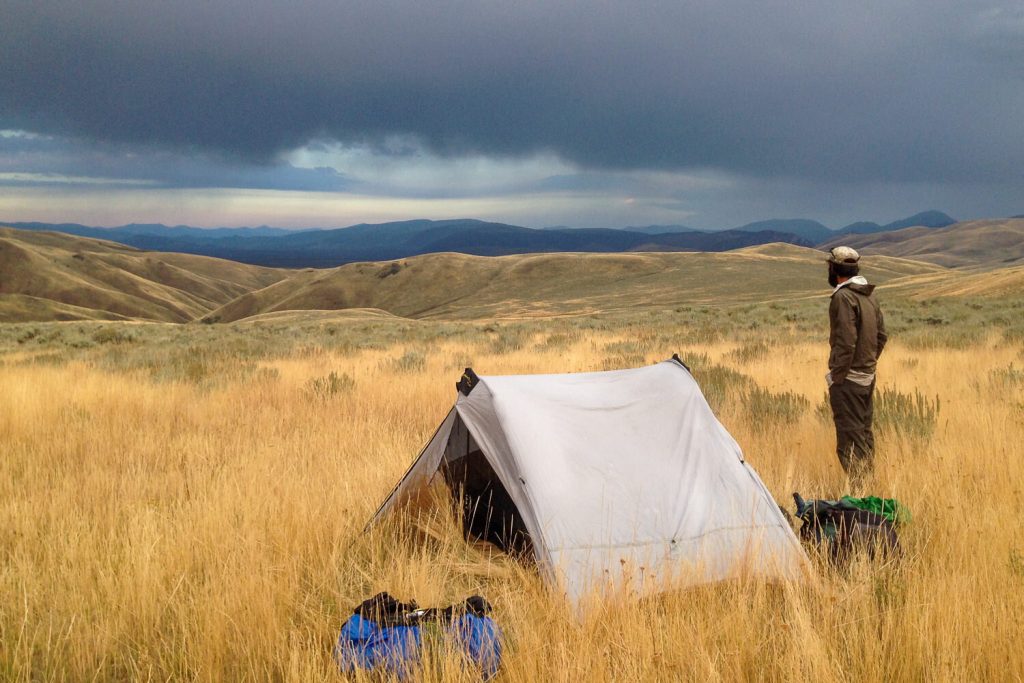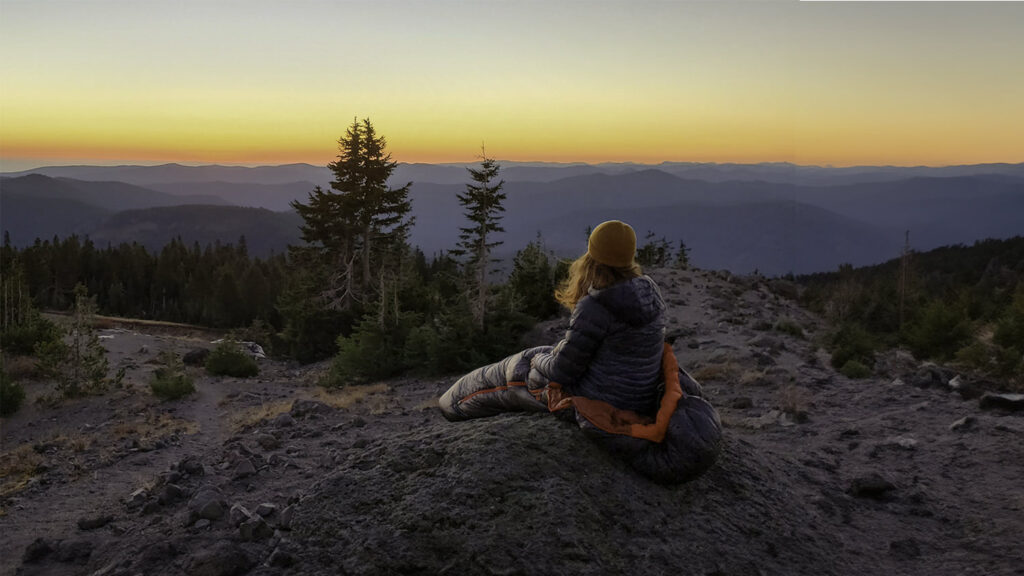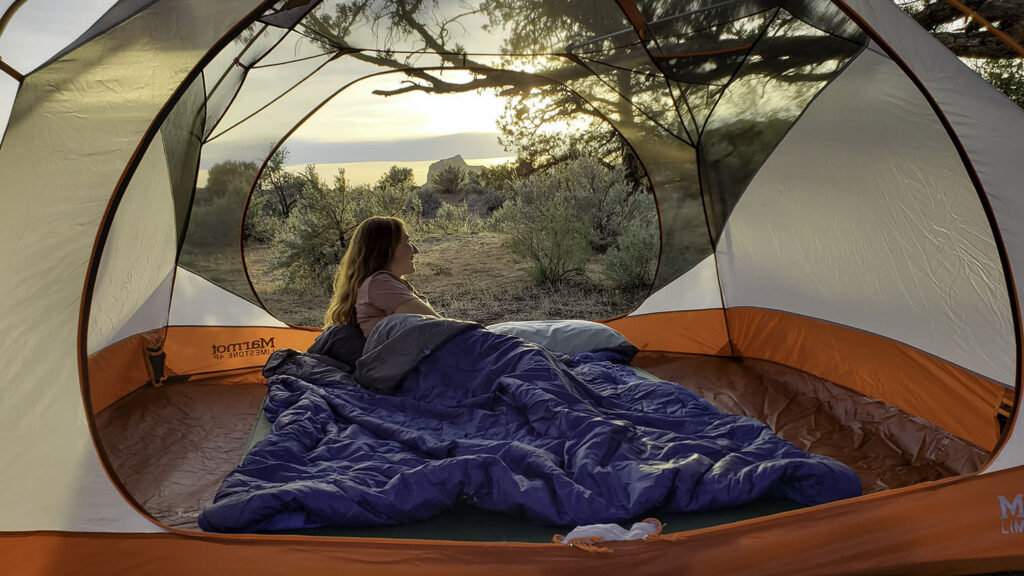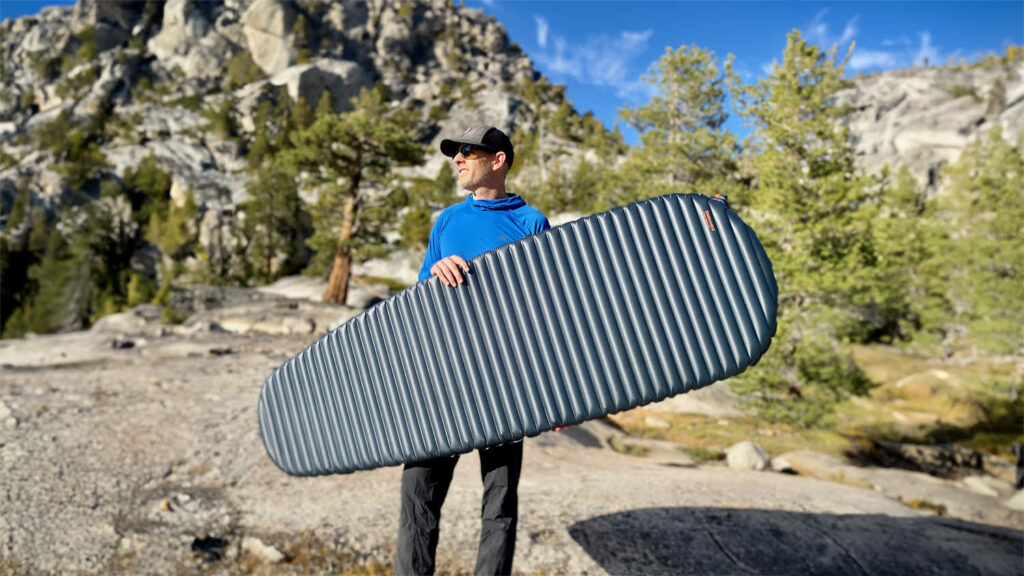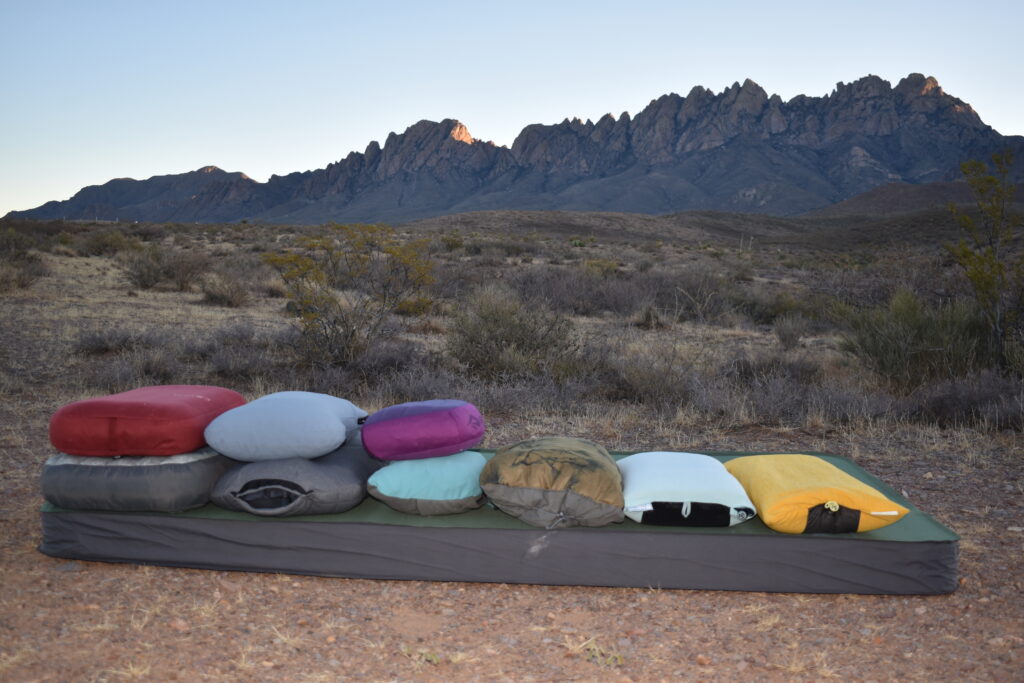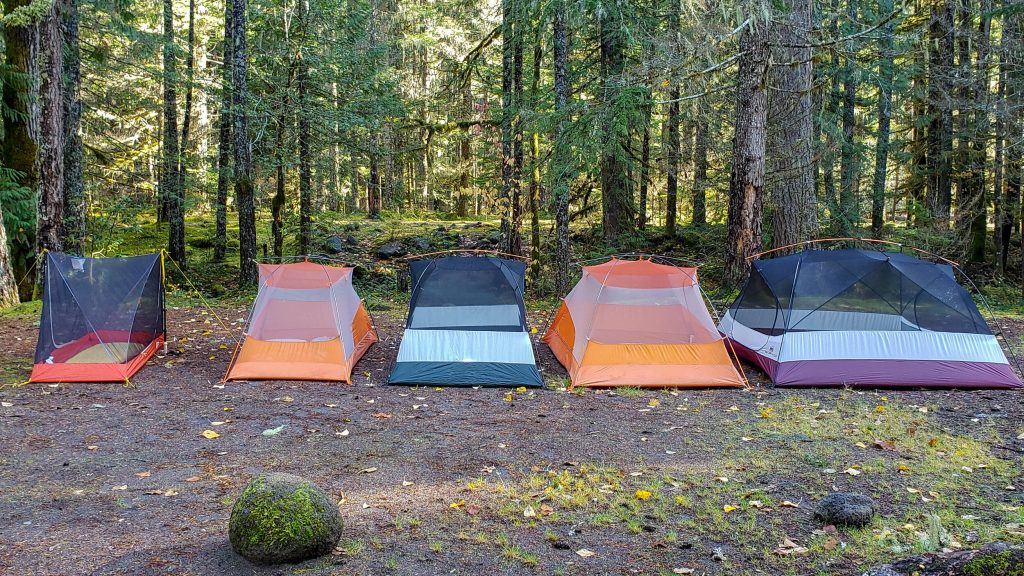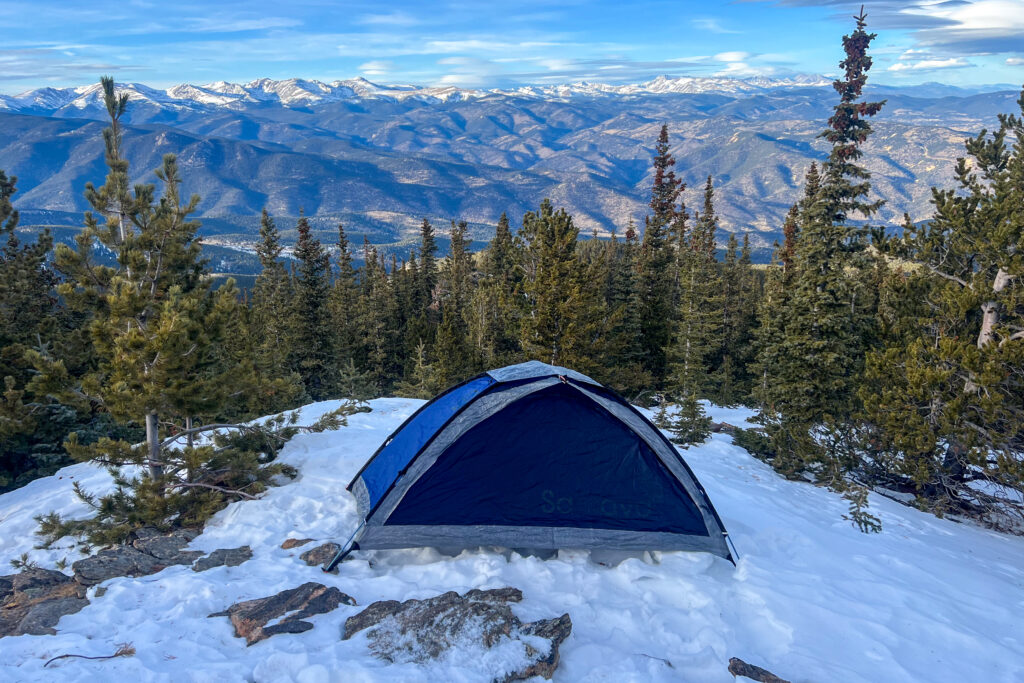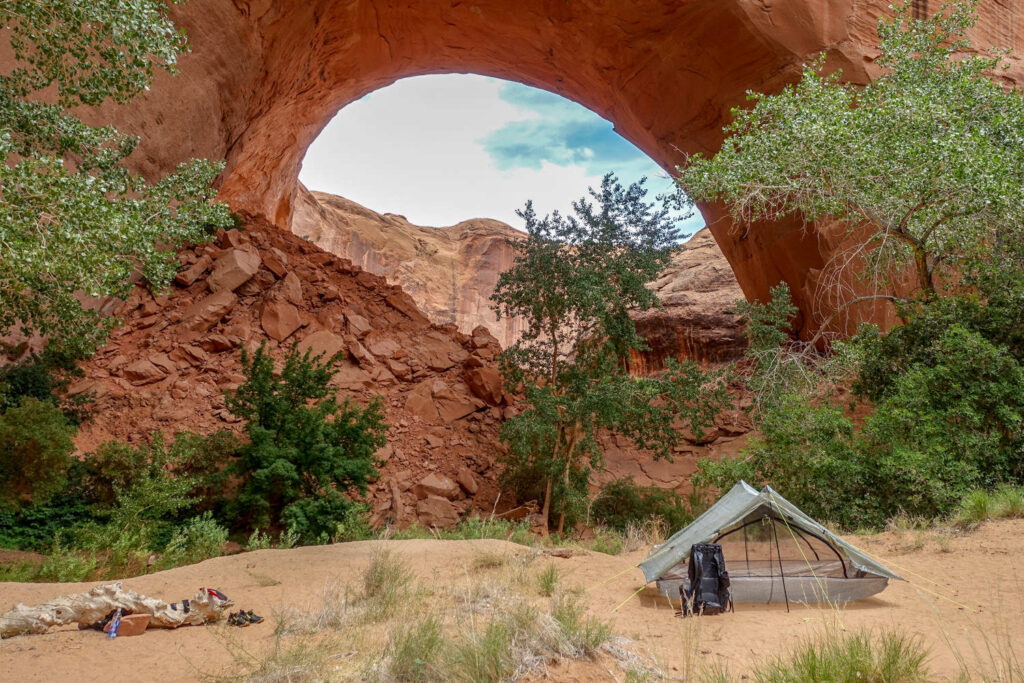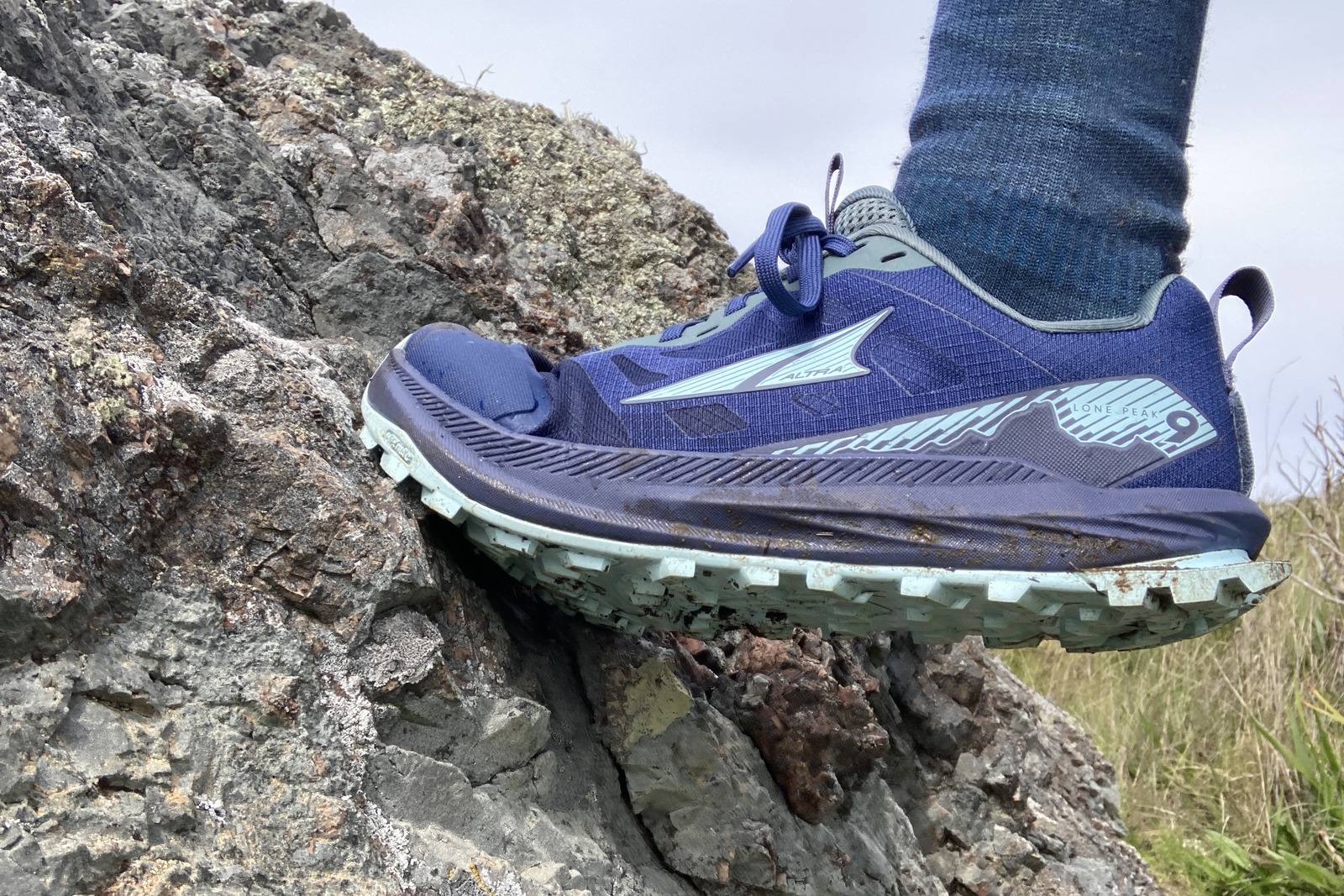
Bottom Line
The Altra Lone Peak 9 puts a pep in our step with its roomy fit and zero-drop design, making it a favorite for hiking and trail running. We appreciate the wide toe box and zero drop design (though some may find it takes getting used to), which mold to the natural contours of our feet.
Though the Lone Peak isn’t the most weather-resistant option, the updated reinforced ripstop mesh upper stands up well to wear.
After hitting coastal trails in Northern California, we ultimately found that this newest version of the Lone Peak combines the best qualities of previous models, as well as offering some new updates that make it stand out even further: an improved outsole that maximizes longevity and durability, an updated midsole that provides more responsive and slightly firmer cushion, and a more streamlined, sleek design with a snugger heel cup.
If you’re exploring other great options, look at our full guide to the best women’s hiking shoes.
How We Tested
We have tested many versions of the Altra Lone Peak over the years and recently took the Lone Peak 9 on hikes and adventures throughout coastal Northern California. We explored off-trail to test their durability, traction, and grip while taking them through varied.
Quick Specs
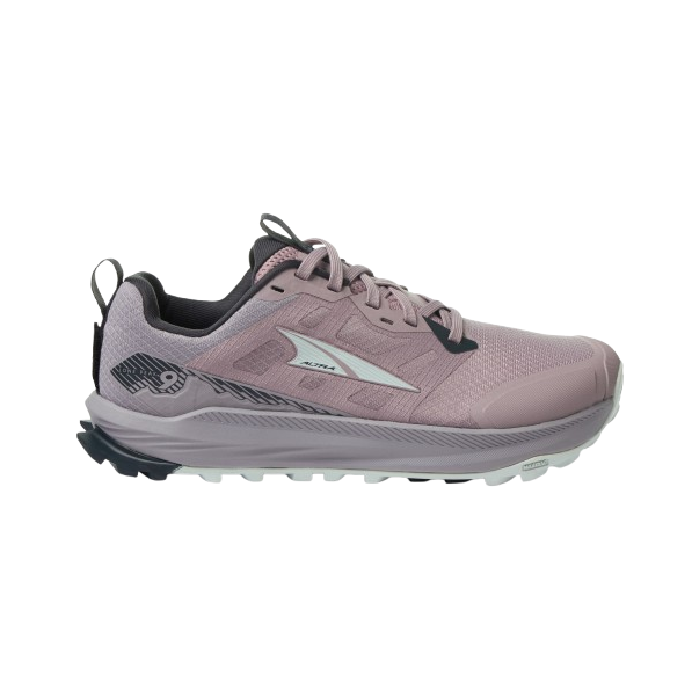
Women’s Altra Lone Peak 9
Best Hiking Shoes for Long-Distance & Thru-Hikers
CleverHiker Rating: 4.7/5.0
Price: $140
Weight (Pair): 1 lb. 3 oz.
Heel-to-Toe Drop: 0 mm
Pros
- Roomy toe box
- Cushion more responsive than previous models
- Ultralight
- Breathable
- No break-in needed
- Built-in gaiter attachment
- Wide sizes available
- Secure heel cup
- Perfect lace length
Cons
- Zero-drop takes some getting used to
- Not as cushioned as other trail runners
- Not as durable as some
- Not supportive enough for heavy loads

Comfort
The Lone Peak 9 still excels in comfort with its roomy toe box, allowing our toes to spread out naturally, preventing blisters, and providing increased stability with a natural and anatomical fit. The shoes are also impressively lightweight and breathable, so our feet stay cooler and fresher even after a full day on the trail.
However, if you’re new to zero-drop shoes, you might need to ease into them. Zero-drop means your heel and toes sit at the same height in the shoe, as opposed to having a raised heel. Hikers who are new to zero-drop should slowly ramp up mileage to build strength in muscles and tendons that aren’t used to this foot position. However, we love the natural fit of these shoes and their immediate comfort out of the box.
We also are excited about the updated midsole and cushion. The unique Altra EGO midsole foam is slightly firmer and more responsive than previous models – offering some bounce to each step. Many previous Lone Peak versions have struggled with their cushion degrading too fast; however, this midsole seems to be made of higher-quality materials that will have a longer lifespan.
We are also stoked about the secure and snug heel cup that even holds narrow ankles in place without any slippage on the trail. This is a huge bonus for those who have struggled to find a secure fit on shoes with a wide to box. Along with the heel cup, we appreciate the perfect length of the laces. Many previous models of Altra shoes have either had laces too long or too short, yet those on the Lone Peak 9 are the Goldilocks length.
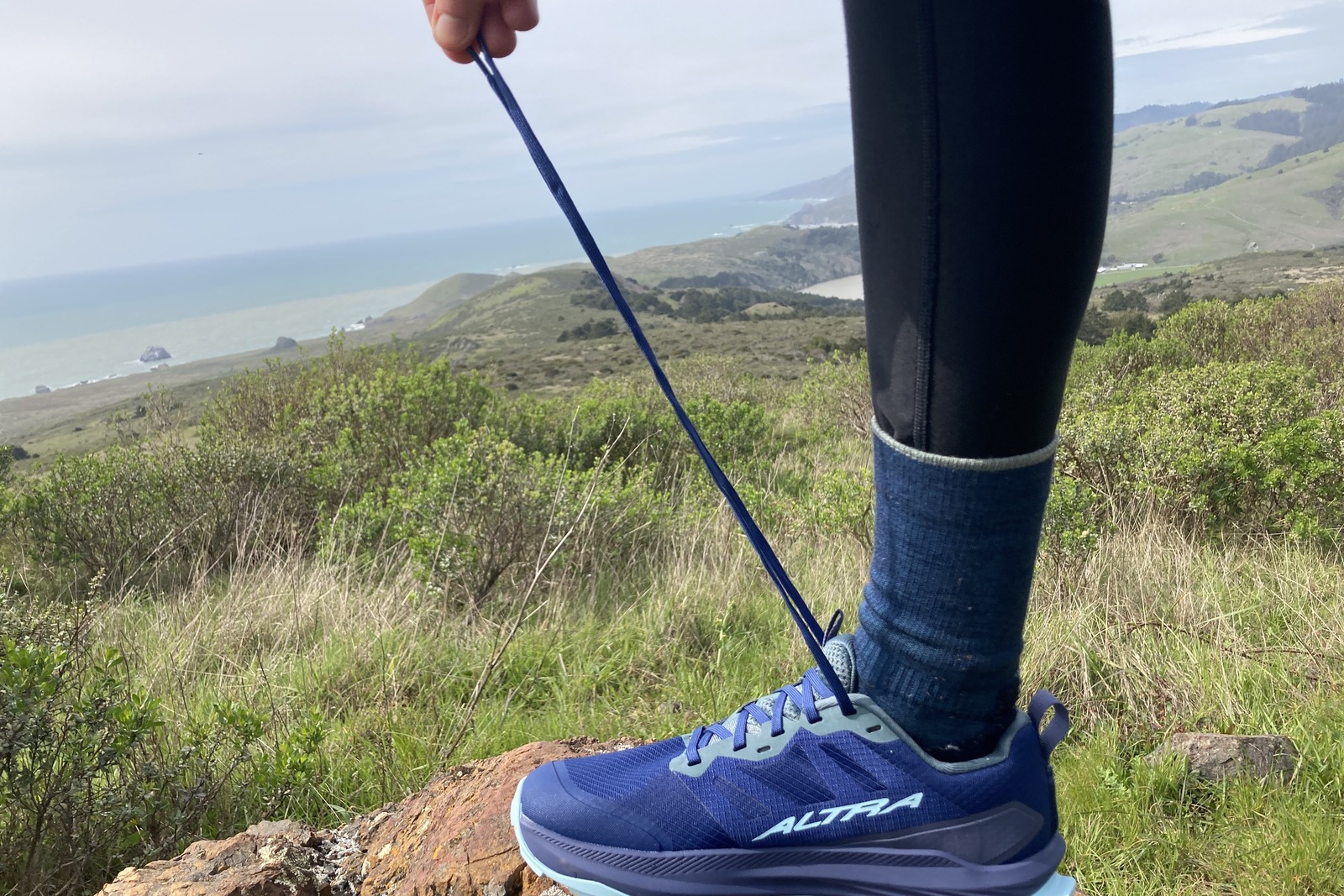
Traction
The Lone Peak 9 provides mid-level traction on a variety of surfaces. When hiking on both wet, muddy trails and dry, rocky terrain in coastal Northern California, we felt confident navigating slippery sections thanks to the grippy MaxTrac rubber. The lug pattern even grips loose gravel and dirt without a problem.
However, the shoe’s grip wasn’t the most secure we tested. Still, the traction is sufficient for most typical trail conditions.
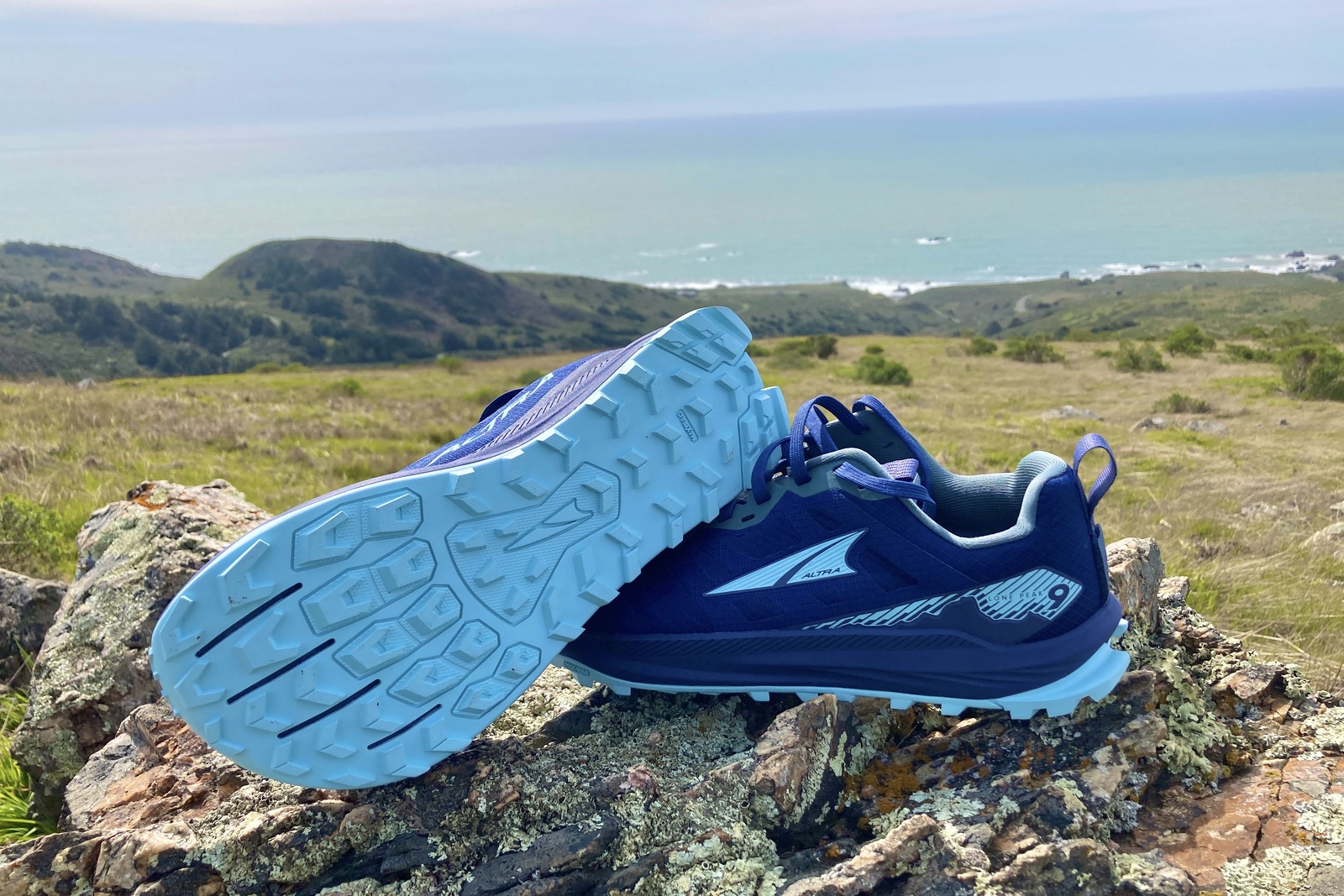
Weight
The ultralight nature of the Lone Peak 9 is one of its standout features. When weighing a Women’s 8.5 size shoe on our kitchen scale, we found that one shoe comes in at just 9.4 ounces. On a long-distance or challenging hike, every ounce counts, and these shoes help us keep our weight manageable. They feel almost weightless on the feet, which reduces fatigue over long stretches. However, the Lone Peak 9 might provide less support than heavier, more robust options if you carry a heavy pack or tackle rugged terrain. They are hard to beat for a balance of light weight and toe comfort.
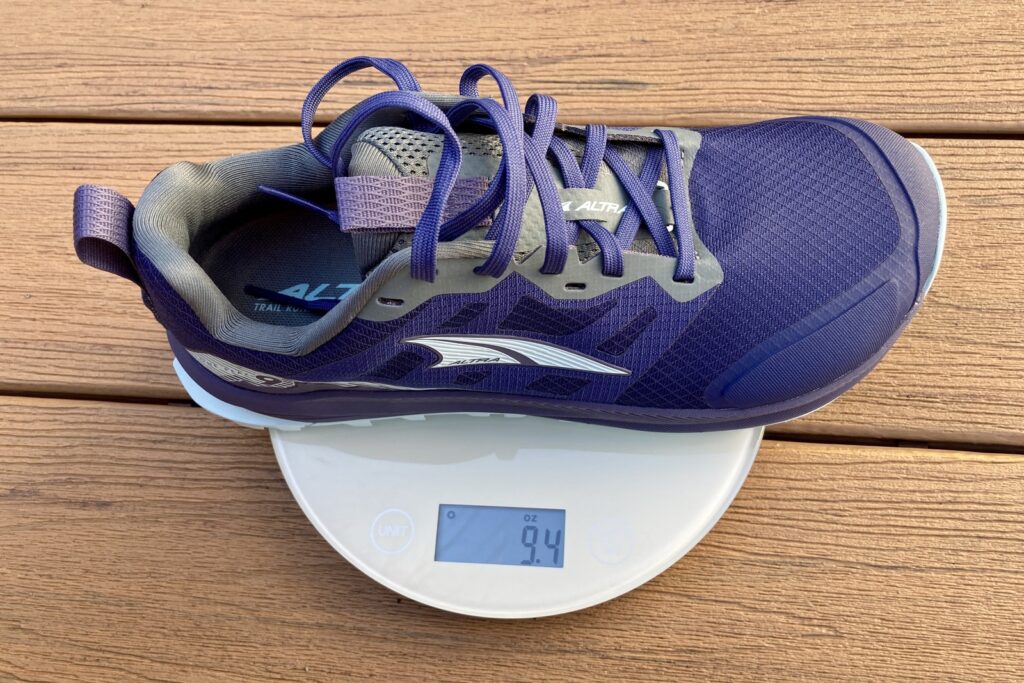
Durability
In terms of durability, the Lone Peak 9 shows some improvement over its predecessors, including increased toe bumper protection along the front of the shoe. The new ripstop nylon upper also held up well whenever we ventured off trail, where previous models might have worn out faster.
That said, if you’re hard on your gear, you might still need to replace them more frequently than other trail shoes. For those who regularly push their gear to the limit, the Lone Peak 9 strikes a good balance, but it’s not the most indestructible shoe out there.

Weather Resistance
The Lone Peak 9 isn’t meant to keep your feet dry. When exposed to inclement conditions, water immediately absorbs through the upper. If you’re frequently in wet environments, these shoes might not be the best choice for staying dry, but the upside is they dry very quickly. Luckily, Altra offers a waterproof version of the Lone Peak.
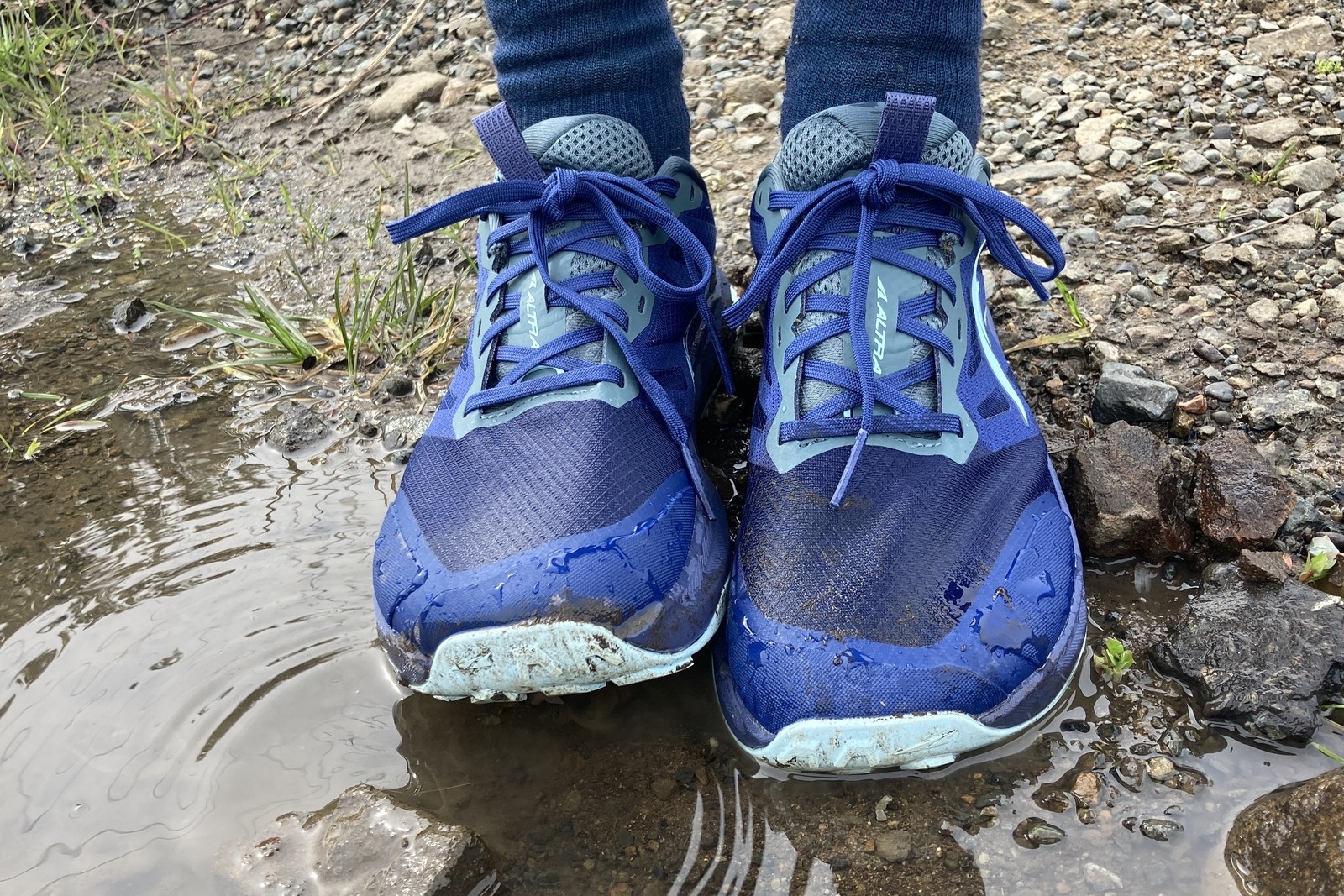
Should You Buy the Altra Lone Peak 9?
The Altra Lone Peak 9 is a great choice if you’re a lightweight hiker or trail runner who values a roomy toe box and prefers a zero-drop design for more natural foot movement. These shoes thrive on moderate trails with varied conditions, offering comfort and breathability over long distances.
If you’ve had issues with blisters or cramped toes, the Lone Peak 9’s fit will likely be a game-changer. However, these might not be ideal if you frequently tackle rugged terrain with heavy loads or need maximum durability and support. The traction on wet rocks isn’t the best, and the lightweight design means they might wear out faster than some other options.
However, recent updates to this newest model have definitely improved durability. For a versatile trail shoe for a light mission or long thru-hike, the Lone Peak 9 is worth considering when it comes to comfort and weight—just keep in mind it might require some adjustment if you’re new to zero-drop footwear.
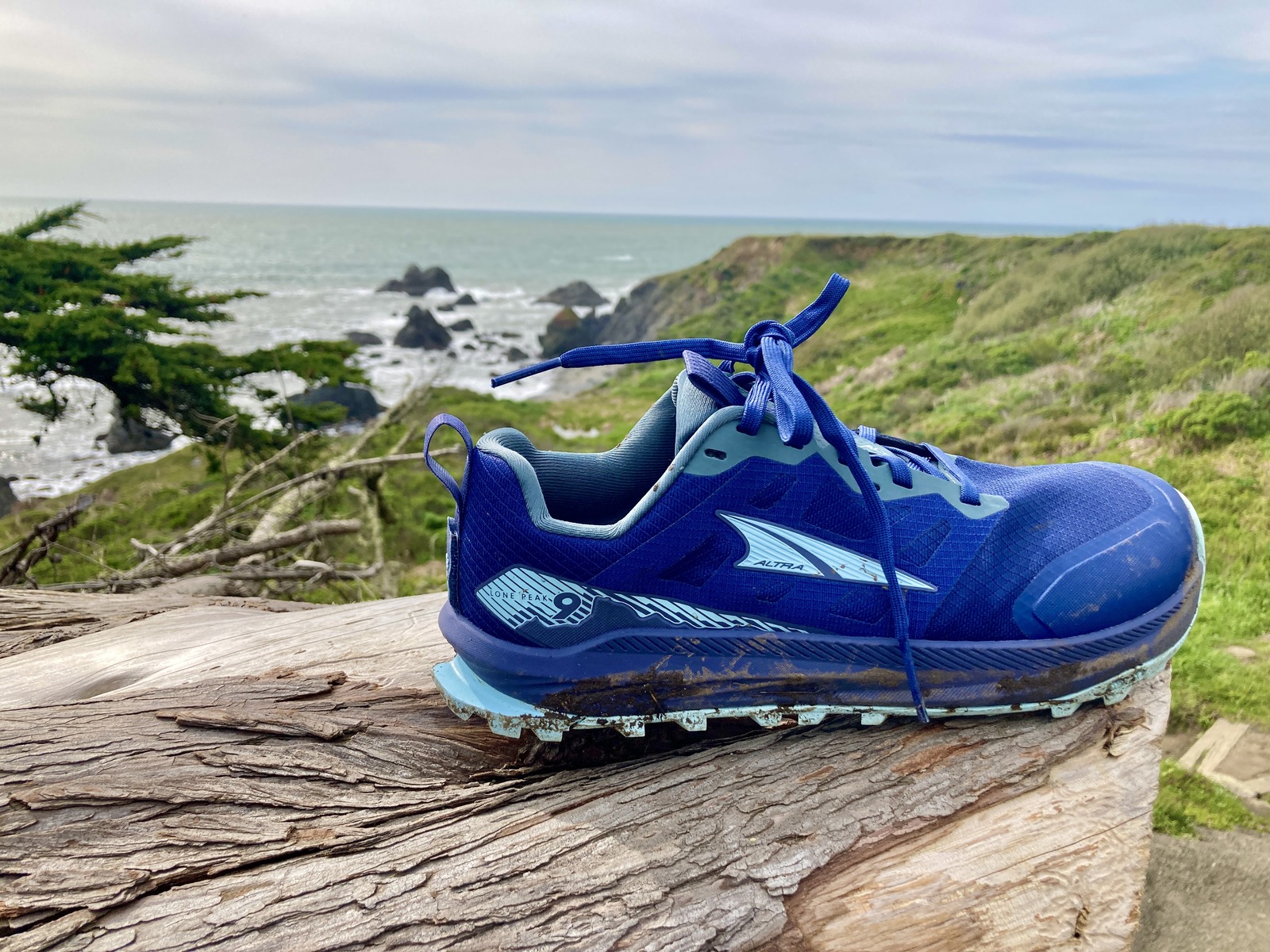
What Other Women’s Hiking Shoes Should You Consider?
If you’re eyeing the Altra Lone Peak 8, check out these alternatives.
HOKA Speedgoat 6 Review: The HOKA Speedgoat 6’s plush support, combined with lightness and durability, make it a solid option for hikers who need extra cushioning on rugged trails. However, the shoes’ bulkiness could be a drawback if you’re going to hike technical routes with a lot of descending and scrambling.
Topo Ultraventure 4 Review: If you still want something for a long hike, the Topo Ultraventure 4 offers exceptional cushioning and an even roomier fit. However, it might not provide the best stability on technical terrain.
Xero Shoes Scramble Low Trail WP Review: This is a great pick if you want to stick with a zero-drop shoe that offers solid waterproofing. This pair is perfect for those who appreciate enhanced ground feel and want to explore the minimalist/barefoot world of hiking.
